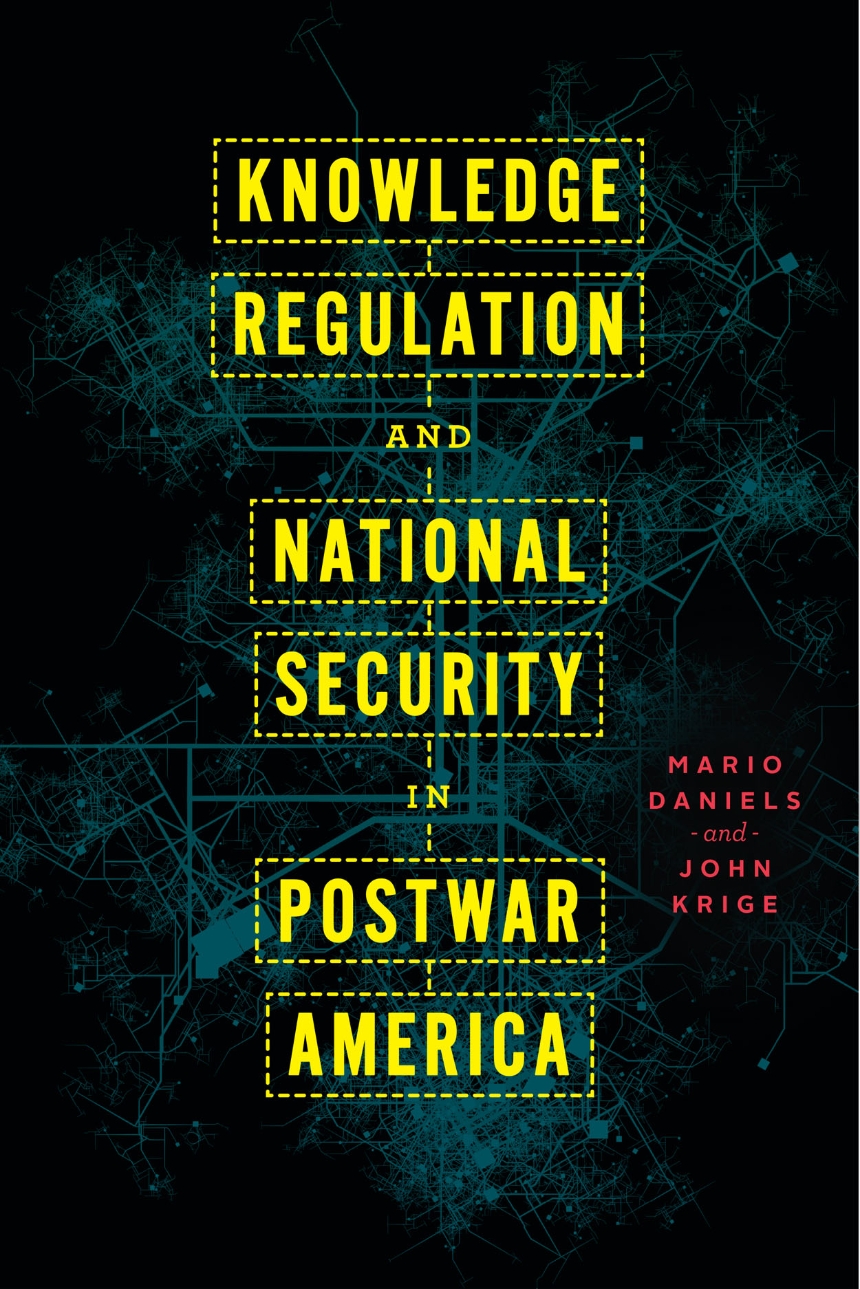Knowledge Regulation and National Security in Postwar America
9780226817538
9780226817484
9780226817521
Knowledge Regulation and National Security in Postwar America
The first historical study of export control regulations as a tool for the sharing and withholding of knowledge.
In this groundbreaking book, Mario Daniels and John Krige set out to show the enormous political relevance that export control regulations have had for American debates about national security, foreign policy, and trade policy since 1945. Indeed, they argue that from the 1940s to today the issue of how to control the transnational movement of information has been central to the thinking and actions of the guardians of the American national security state. The expansion of control over knowledge and know-how is apparent from the increasingly systematic inclusion of universities and research institutions into a system that in the 1950s and 1960s mainly targeted business activities. As this book vividly reveals, classification was not the only—and not even the most important—regulatory instrument that came into being in the postwar era.
In this groundbreaking book, Mario Daniels and John Krige set out to show the enormous political relevance that export control regulations have had for American debates about national security, foreign policy, and trade policy since 1945. Indeed, they argue that from the 1940s to today the issue of how to control the transnational movement of information has been central to the thinking and actions of the guardians of the American national security state. The expansion of control over knowledge and know-how is apparent from the increasingly systematic inclusion of universities and research institutions into a system that in the 1950s and 1960s mainly targeted business activities. As this book vividly reveals, classification was not the only—and not even the most important—regulatory instrument that came into being in the postwar era.
432 pages | 8 tables | 6 x 9 | © 2022
History: American History, History of Technology
Law and Legal Studies: Law and Society
Political Science: American Government and Politics, Diplomacy, Foreign Policy, and International Relations
Reviews
Table of Contents
List of Abbreviations
Chapter 1. Introduction: What Are Export Controls, and Why Do They Matter?
Part 1
Chapter 2. The Invention of Export Controls over Unclassified Technological Data and Know-How (1917–45)
Chapter 3. The Cold War National Security State and the Export Control Regime
Part 2
Chapter 4. The Recalibration of American Power, the Bucy Report, and the Reshaping of Export Controls in the 1970s
Chapter 5. The Reagan Administration’s Attempts to Control Soviet Knowledge Acquisition in Academia
Chapter 6. Academia Fights Back: The Corson Panel and the Fundamental Research Exclusion
Part 3
Chapter 7. “Economic Security” and the Politics of Export Controls over Technology Transfers to Japan in the 1980s
Chapter 8. Paradigm Shifts in Export Control Policies by Reagan, Bush, and Clinton and the Evolving US-China Relations
Chapter 9. The Conflict over Technology Sharing in Clinton’s Second Term: The Cox Report and the Use of Chinese Launchers
Part 4
Chapter 10. Epilogue: Export Controls, US Academia, and the Chinese-American Clash during the Trump Administration
Notes
Index
Chapter 1. Introduction: What Are Export Controls, and Why Do They Matter?
Part 1
Chapter 2. The Invention of Export Controls over Unclassified Technological Data and Know-How (1917–45)
Chapter 3. The Cold War National Security State and the Export Control Regime
Part 2
Chapter 4. The Recalibration of American Power, the Bucy Report, and the Reshaping of Export Controls in the 1970s
Chapter 5. The Reagan Administration’s Attempts to Control Soviet Knowledge Acquisition in Academia
Chapter 6. Academia Fights Back: The Corson Panel and the Fundamental Research Exclusion
Part 3
Chapter 7. “Economic Security” and the Politics of Export Controls over Technology Transfers to Japan in the 1980s
Chapter 8. Paradigm Shifts in Export Control Policies by Reagan, Bush, and Clinton and the Evolving US-China Relations
Chapter 9. The Conflict over Technology Sharing in Clinton’s Second Term: The Cox Report and the Use of Chinese Launchers
Part 4
Chapter 10. Epilogue: Export Controls, US Academia, and the Chinese-American Clash during the Trump Administration
Notes
Index
